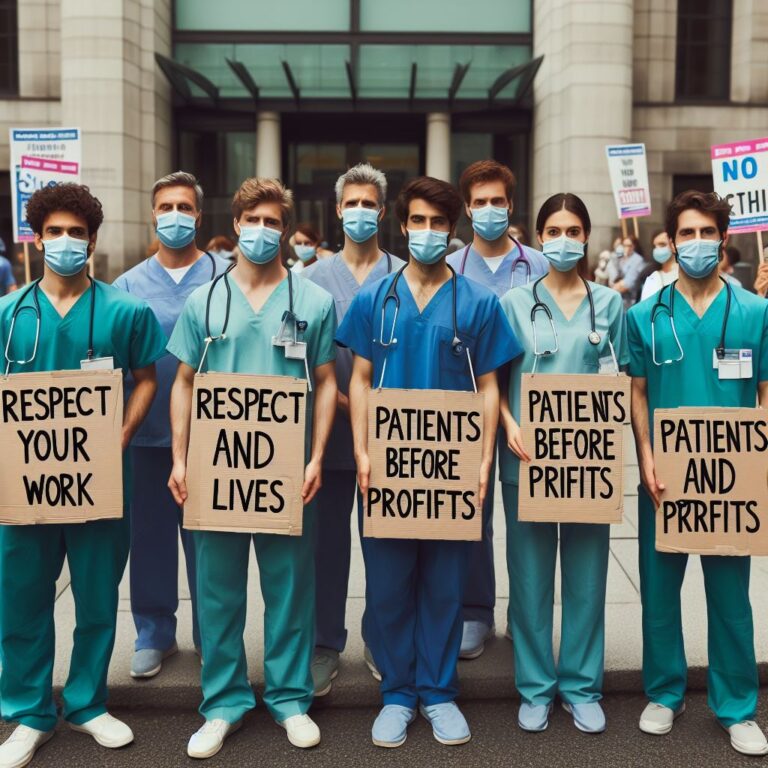Government Clashes with Medical Professionals Over Admissions Increase
In a high-stakes standoff, nearly 9,000 medical interns and doctors in South Korea have embarked on a strike, voicing their vehement opposition to the government’s plan to expand medical school admissions. The contentious issue revolves around the potential impact on the quality of medical education, public health, and the country’s response to health emergencies.
Government’s Ultimatum and Legal Measures
The South Korean government has taken a firm stance, ordering the striking doctors to return to work by February 29, 2023. Failure to comply could result in the suspension of their licenses for at least three months. The government contends that the increase in medical school admissions is necessary to address the shortage of doctors, especially in rural areas, and to cater to the aging population.
Doctors’ Concerns and Demands
The striking doctors, however, argue that the government’s plan poses significant risks. They fear that the influx of new students will lead to a dilution of medical education quality. Moreover, they believe that these students will gravitate toward lucrative specialties rather than serving in essential fields or underserved regions. The doctors’ demands center on maintaining the integrity of medical training and ensuring that future physicians prioritize public health over personal gain.
Impact on Hospital Services and Public Health
The strike has had severe repercussions on hospital operations. Hundreds of surgeries and treatments have been canceled, leaving patients in limbo. The situation is particularly precarious given the ongoing COVID-19 pandemic and other health emergencies. The absence of these medical professionals exacerbates the strain on an already stretched healthcare system.
Looking Ahead
As the strike continues, tensions escalate between the government and the medical community. Finding a resolution that balances the need for more doctors with the quality of medical education remains a critical challenge. South Korea’s healthcare landscape hangs in the balance, and the fate of thousands of patients hinges on a swift and equitable resolution.
Check out more articles like this at News Archives – Topic In One Article
